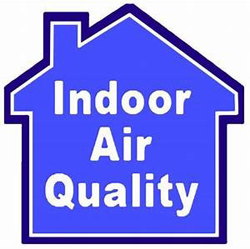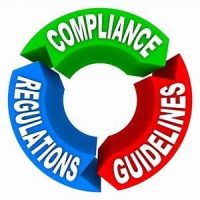
Providing clients peace of mind and knowledgeable support through a single point of contact
Who We Are
In 2015, W.E. Anderson Environmental Consulting was founded with over 30 years of experience in the Environmental Consulting, Health and Safety, Industrial Hygiene, and Construction Industries. We have assembled a highly qualified team with unparalleled combined expertise in the industry; we deliver quality service at every level. Our well-trained staff focuses on our clients and their projects and gives them the attention they expect and deserve. We at W.E. Anderson Environmental Consulting understand that service is the key to our client’s success and our own.
SERVICES
W.E. Anderson Environmental Consulting provides our services to the legal community, property owners and managers, educational facilities, state and federal governments, and healthcare facilities.
Asbestos/ Mold/Lead Inspections, Testing and Hazard Assessments

Abatement Project Management/ Design/ Oversite/ Air Sampling

Indoor Air Quality Assessments

Radon Testing

EPA/OSHA/CDPHE Regulatory Compliance Support and Training
Project Management Services
Including asbestos inspections/hazard assessments, abatement project designs/bid procurement, and abatement project oversight, air sampling, developing cost estimates, mediating project progress meetings with owners/contractors, conducting industrial hygiene and environmental health surveys and sampling, instruction in general employee safety orientations, developing safety policies and procedures, conducting worksite safety audits, developing and supervising asbestos air sampling programs, conducting surveys and sampling for asbestos, lead, mold, radon, PCB’s, airborne pathogens and other workplace hazards.

No Asbestos Ban in the US
The United States is one of the few major industrialized nations without an asbestos ban in place. It continues to be used in gaskets, friction products, roofing materials, fireproofing materials and other products that are used every day.
More than 50 countries, including the United Kingdom, Australia, Canada and all 28 countries of the European Union, have banned the use of asbestos.
The U.S. continues to import and use asbestos with no plan for stricter regulations in place. According to the U.S. Geological Survey, 750 metric tons of asbestos were imported in 2018.
It may be shocking to many, especially if you are among many people who believe that asbestos was banned in the U.S. after warnings were issued in the 1970s.
We now know for certain that all forms of asbestos can cause mesothelioma, lung cancer and other chronic respiratory conditions.
It was not until the early 1970s that government agencies, such as the Occupational Safety and Health Administration (OSHA) and the U.S. Environmental Protection Agency (EPA), were created to limit exposures to asbestos and other toxic pollutants.
Although it is highly regulated in the U.S. today, asbestos continues to be used in hundreds of consumer products if it accounts for less than one percent of the product.


What is radon gas? Is it dangerous?
Radon is a naturally occurring radioactive gas that can cause lung cancer. Radon gas is inert, colorless, and odorless. Radon is naturally in the atmosphere in trace amounts.
Outdoors, radon disperses rapidly and, generally, is not a health issue. Most radon exposure occurs inside homes, schools, and workplaces. Radon gas becomes trapped indoors after it enters buildings through cracks and other holes in the foundation.
Indoor radon can be controlled and managed with proven, cost-effective techniques. Breathing radon over time increases your risk of lung cancer. Radon is the second leading cause of lung cancer in the United States. Nationally, the EPA estimates that about 21,000 people die each year from radon-related lung cancer. Only smoking causes more lung cancer deaths.
LEAD
Even minimal exposure to lead-based paint in older buildings can harm those who are exposed regularly, especially young children, unborn children, and pregnant women. Lead gets into the bloodstream when people ingest lead paint chips or breathe lead paint dust.


Indoor Air Quality
Indoor Air Quality (IAQ) refers to the air quality within and around buildings and structures, especially as it relates to the health and comfort of building occupants. Understanding and controlling common pollutants indoors can help reduce your risk of indoor health concerns.
Mold
https://www.epa.gov/mold/mold-frequently-asked-questions
Other Air Quality Problems
https://cdphe.colorado.gov/defining-an-indoor-air-quality-problem

Your content goes here. Edit or remove this text inline or in the module Content settings. You can also style every aspect of this content in the module Design settings and even apply custom CSS to this text in the module Advanced settings.
Contact Us
Colorado Office
(720) 282-9983
Jamie Anderson - President
(720) 404-6300
info@weandersonllc.com
Address
20465 East Quincy Drive
Centennial, CO 80015
NEW MEXICO OFFICE COMING SOON!